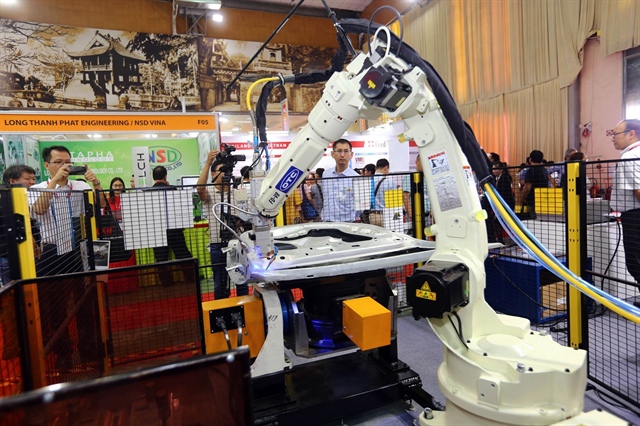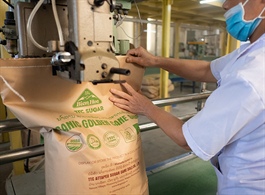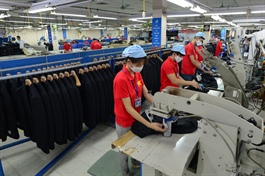Vietnam targets major goals to develop support industries
Vietnam targets major goals to develop support industries
The development of support industries plays a very important role in Vietnam’s efforts to become a modern industrialized country by 2045, a goal set out by Politburo Resolution 23-NQ/TW on national industrial development policies.
Resolution 23-NQ/TW dated March 23, 2018 targets completion of Vietnam’s industrialization and modernization by 2045 to rank in the top three spots of the Association of Southeast Asian Nations (ASEAN). The goal includes several industries achieving competitiveness at international level and deep involvement in global value chains.
Regarding specific objectives, by 2030, industry will account for over 40 percent of the GDP, with processing and manufacturing industry making up about 30 percent, of which the manufacturing industry will account for over 20 percent. The high-tech manufacturing value added share is to account for at least 45 percent; the growth rate of industrial value added is targeted to attain an average of 8.5 percent annually, with manufacturing industries averaging over 10 percent per year.

Appropriate policies have been adopted to promote the engagement of enterprises in support industries |
Other targets include average industrial labor productivity growth of 7.5 percent per year; the Competitive Industrial Performance (CIP) index to rank among ASEAN’s three leading countries; the rate of labor in the industrial and service sectors to reach over 70 percent. The resolution also calls for Vietnam to establish a number of specialized industrial clusters for specific industries, and multinational large-scale, domestic industrial enterprises with international competitiveness.
Attracting foreign investment
To achieve the above goal, Resolution 23 also offers policies to encourage the development of small and medium-sized enterprises, and supporting industry enterprises of all economic sectors; prioritize supporting weak or important stages in product value chains; and develop suppliers in prioritized industries, considering it as the core policy of supporting industry development.
In particular, the state needs to renew policies to attract foreign direct investment (FDI) in the industrial sector, especially the processing and manufacturing industry with priorities given to projects using high, new, clean and economical technologies, as well as domestically-made materials and components. The resolution also calls for attracting FDI in the form of joint ventures with domestic enterprises and with multinational internationally-branded companies with high competitiveness.
Resolution 23 also creates a specialized mechanism to encourage businesses to invest in high value-added and high-tech industries and adopt credit policies according to production networks based on the effectiveness of investment projects.
In order to realize these ambitious goals, the Government recently issued various policy decisions to support enterprises investing in the supporting industry. These include Government Resolution 115/NQ-CP on development of support industries issued in August 2020; Government Decree 57/2021/ND-CP issued in June 2021 on supplementing corporate income tax incentives for manufacturing supporting industry products. The above preferential policies have opened up favorable opportunities, encouraging the engagement of enterprises in the field of supporting industry.





















